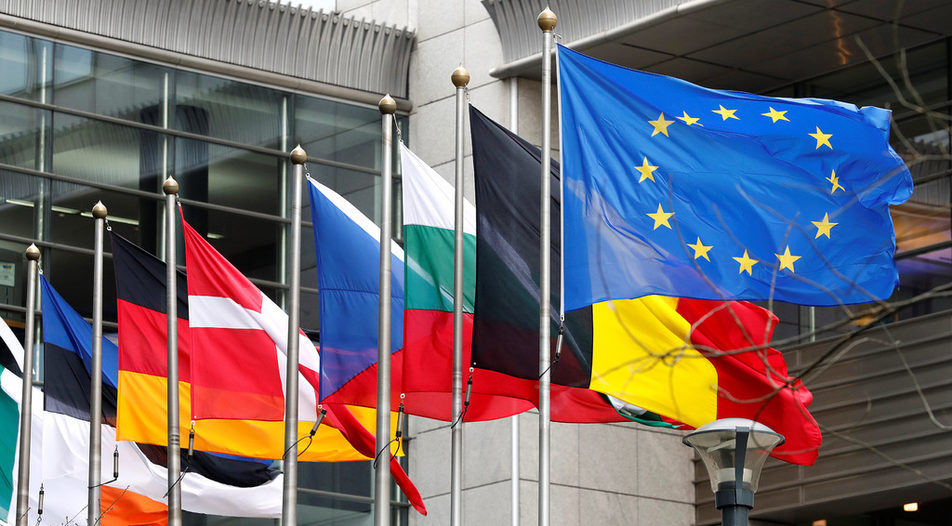Bulgaria is about to set a new record - of being the EU member state with longest held empty chair in the European Commission. Following the resignation of Kristalina Georgieva, Vice-President of the European Commission and Commissioner responsible for Budget and Human Resources at the end of October 2016, the Bulgarian seat is unoccupied and will remain so until the end of April.
The odd situation is a result of political infighting in Sofia between the major political parties which don't want to take responsibility. The political calculation is that most probably none of the candidates close to those parties' decision makers has a chance to be assigned a portfolio even remotely equivalent to Mrs Georgieva's. This will certainly be perceived as a failure which no party wants to take blame for before the elections.
Kristalina Georgieva resigned following her unsuccessful bid to become UN Secretary General and decided to fill in the newly created position of CEO of the World Bank, the international institution where she had spent most of her globetrotting career. The move was unexpected and the government was not ready to deal with it. Moreover, it coincided with the campaign for the presidential elections in 2016, which was not a good time to seek a broad political consensus on a new nomination for European Commissioner.
Bulgaria's seat at the Commissioners' table has been empty since then and it will remain so at least until a new regular government is formed in April. The caretaker government appointed by the newly-elected president Roumen Radev refuses to engage in what will be a highly contested political battle.
The GERB-led government which resigned on 14th of November refused to nominate a new Bulgarian Commissioner although it had the power to do it but in the last days of its life, it hardly had the legitimacy. Furthermore, Prime Minister Boyko Borissov was resentful of his experience picking the Bulgarian candidate for UN Secretary General. He supported Mrs. Georgieva's bid which was announced at the end of September 2016 after a particularly long and tortuous process of realising that the initial Bulgarian contender Irina Bokova had no chance of winning the race. That Mrs Bokova would be blocked by at least one of the permanent Security Council members was clear from the beginning, and the decision of Mr Borirosv to support her was based on ill-calculated domestic political considerations. The then Bulgarian Commissioner entered the fray a little too late to reshuffle the Secretary General's election process, but Borissov blamed her for his own political miscalculations.
There are some hints here and there about who might be the next Bulgarian candidate for European Commissioner - or some brazen PR attempts at self-promotion in local media, but overall, until the next prime minister assumes his post, anyone's name is a wild guess. Rumors have it that the nominee might be former Commissioner Meglena Kuneva, Ilyana Tsanova, the Deputy Managing Director of the European Fund for Strategic Investments, or the former Socialist Minister of Foreign Affairs Kristian Vigenin.
While nobody in Brussels seems to worry - or, to be honest, to even notice, the situation is not in the very least favorable for Bulgaria. Always the last in the EU in any poll - the poorest, the most corrupt, etc., Bulgaria badly needs good representation on the bloc's executive body. Ten years into its membership, the country is still under the Verification Mechanism, a humiliating tool which deservedly places the country in a sort of second-tier membership. With Brexit around the corner, the debate on the future of Europe boiling and EU in existential crisis, Bulgaria risks to be seen as irrelevant if there is nobody to present its point of view in the College of European Commissioners.
Moreover, the first Bulgarian presidency of the Council of the European Union is coming up in less than a year from now. The authorities seem mired in a logistical mess, and it looks like there isn't much attention paid to the other aspects of the presidency, like agenda setting and policy making.
With all this taken into account, it might be difficult to find someone to fill the shoes of a highly respected and extremely competent Bulgarian Commissioner - which is what the country needs. Mrs. Georgieva, with her 20 years of experience in the World Bank and American style can-do approach was well regarded within the EU bureaucracy, punched for Bulgaria above its weight. It isn't the best of times to be without representation at the table of the European Commission.
Bulgaria is about to set a new record - of being the EU member state with longest held empty chair in the European Commission. Following the resignation of Kristalina Georgieva, Vice-President of the European Commission and Commissioner responsible for Budget and Human Resources at the end of October 2016, the Bulgarian seat is unoccupied and will remain so until the end of April.












